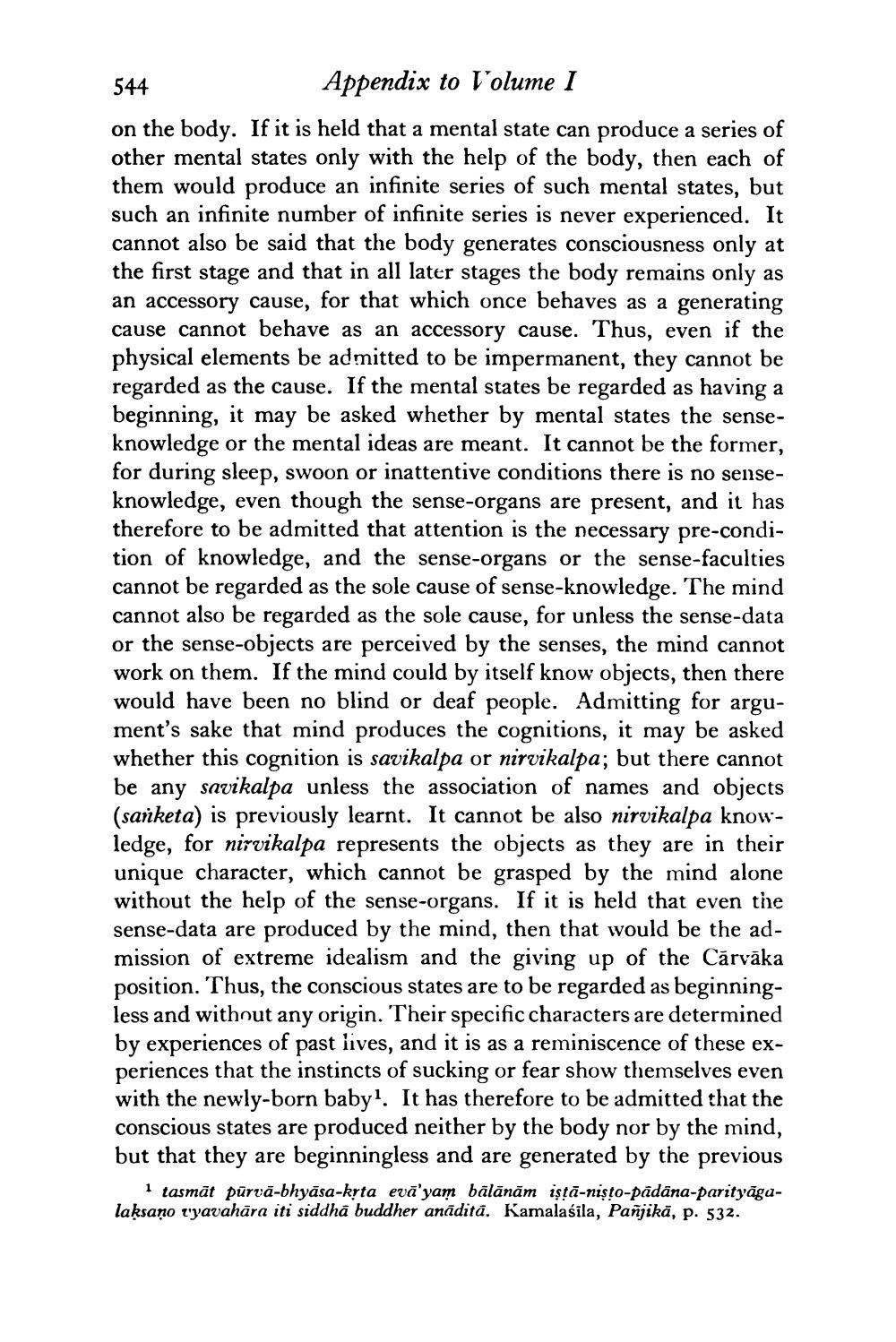________________
544
Appendix to l'olume I on the body. If it is held that a mental state can produce a series of other mental states only with the help of the body, then each of them would produce an infinite series of such mental states, but such an infinite number of infinite series is never experienced. It cannot also be said that the body generates consciousness only at the first stage and that in all later stages the body remains only as an accessory cause, for that which once behaves as a generating cause cannot behave as an accessory cause. Thus, even if the physical elements be admitted to be impermanent, they cannot be regarded as the cause. If the mental states be regarded as having a beginning, it may be asked whether by mental states the senseknowledge or the mental ideas are meant. It cannot be the former, for during sleep, swoon or inattentive conditions there is no senseknowledge, even though the sense-organs are present, and it has therefore to be admitted that attention is the necessary pre-condition of knowledge, and the sense-organs or the sense-faculties cannot be regarded as the sole cause of sense-knowledge. The mind cannot also be regarded as the sole cause, for unless the sense-data or the sense-objects are perceived by the senses, the mind cannot work on them. If the mind could by itself know objects, then there would have been no blind or deaf people. Admitting for argument's sake that mind produces the cognitions, it may be asked whether this cognition is savikalpa or nirvikalpa; but there cannot be any savikalpa unless the association of names and objects (sanketa) is previously learnt. It cannot be also nirvikalpa knowledge, for nirvikalpa represents the objects as they are in their unique character, which cannot be grasped by the mind alone without the help of the sense-organs. If it is held that even the sense-data are produced by the mind, then that would be the admission of extreme idealism and the giving up of the Cārvāka position. Thus, the conscious states are to be regarded as beginningless and without any origin. Their specific characters are determined by experiences of past lives, and it is as a reminiscence of these experiences that the instincts of sucking or fear show themselves even with the newly-born baby?. It has therefore to be admitted that the conscious states are produced neither by the body nor by the mind, but that they are beginningless and are generated by the previous
1 tasmāt pūrvā-bhyāsa-krta evā'yam bālānām iştā-nisto-pădāna-parityāgalaksano t'yavahāra iti siddha buddher anădită. Kamalasila, Panjikā, p. 532.




